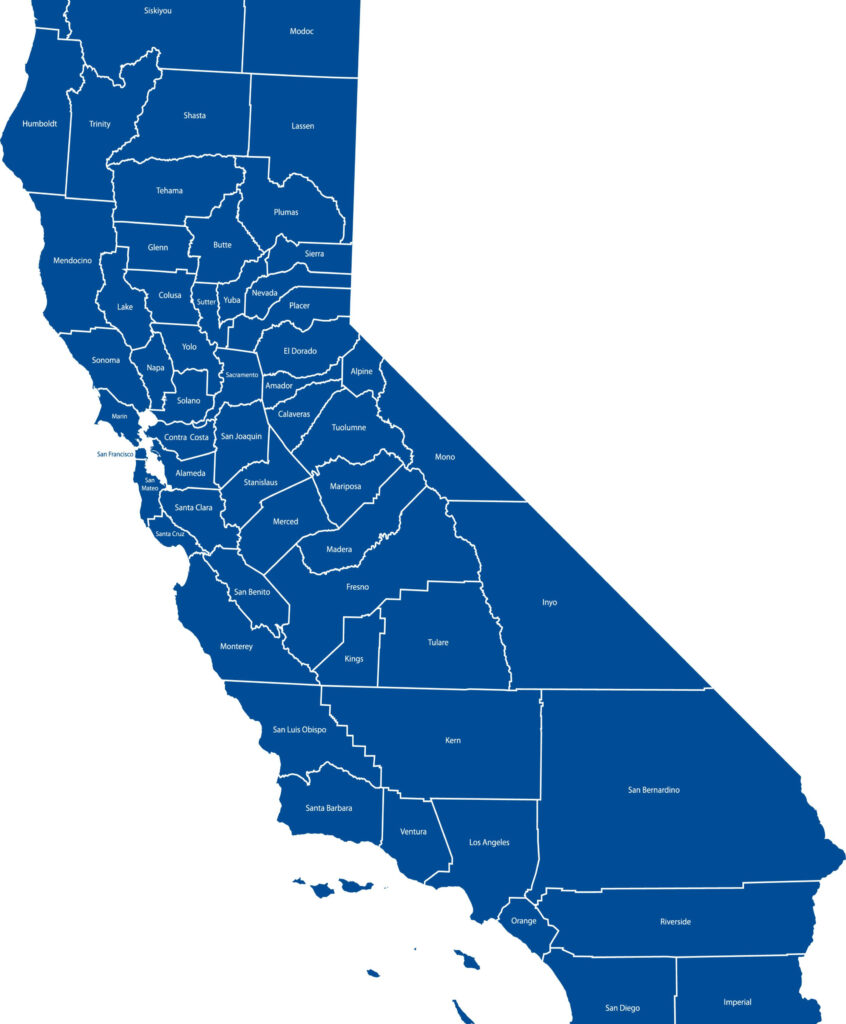California Adult Care Homes: How to pay for, Licensing and Questions to ask…
California is known for sunshine, beautiful coastline, Hollywood and Silicon Valley. But the state has so much more to offer. Cities like Los Angeles, San Francisco and San Diego are world renowned for their cuisine. The culture in California is relaxed and easy going. From the 800 miles of majestic coastline to the lush mountains, California offers everyone great outdoor adventures and fresh air. The state is the most populated in the nation, and also is home to the most diverse population of citizens. Because of the ideal climate and variety of communities, California is a hot spot for seniors and retirees. as our senior population gets older, it is possible many aging adults may require care at some point. A popular care and senior housing option are adult care homes. Adult care homes, typically called Residential Care Facilities for the Elderly, (or residential care homes) are private residences that provide a home-like environment.
Adult care homes serve six residents or less so the ratio of residents to staff is optimal for care. The caregivers may perform several functions, such as personal care, housekeeping, activities which promote social interaction, and group meals.


California has a few benefits for Seniors
- California is home to five distinct climates
- The entertainment: Hollywood attractions, beach and resort towns, mountain getaways, sports entertainment.
- The world-class cuisine
- The senior housing are care options
- UCLA and other highly rated medical facilities
What services do adult care homes offer?
When an individual can no longer manage their health and safety in their own home, and if they do not have family readily available to assist, Residential care facilities (adult family care homes) are an excellent option.
Caregivers in residential care facilities may assist with activities of daily living (ADLs, including:
- Personal care
- Housekeeping
- Activities
- Group meals
- Mobility
- Eating
- Dressing
- Toileting
- Personal hygiene
- Behavior management
Laws and Regulations for Residential Care Facilities
Licensing
Operating under the supervision of Community Care Licensing, a subdivision of the California Department of Social Services. This program was created to provide aging adults (and others) with non-institutional care in a home-like setting under the supervision of the Department of Public Social Services.
Residential Care Facilities are NOT permitted to perform any skilled nursing services. They are permitted to assist with activities of daily living (ADLs). typically, a residential care home houses between 2-7 residents.
There are fourteen Adult Care Licensing offices throughout California. Contact the office in your region with any questions.
Grievances
If you or your loved one have any issues with care you can file grievances with the Social Security Administration. https://www.cdss.ca.gov/inforesources/adult-care-licensing/public-information-and-policies. Asking any questions you have when you meet with homes and agencies will help to understand protocols and expectations. All information about filing grievances or any abuses will be written in the service agreement.
What are the costs of adult care homes in California?
Costs vary depending on where in California you are looking for an adult care home. Typically, a care home may cost between $1,500 per month to $4,500 per month. The average cost for a residential care home in California tends to hover around $3,000.
The average cost for a shared room in a six bed residential care facility per month: $3,000
Private room per month: $4,000-$7,000
The quality and cost of accommodations will vary depending on where you look to live.

Reaching out to California adult care homes in your local region is the most effective way to obtain information about costs. Speaking directly with agencies and those in charge allows you to discuss costs and levels of care, as well as any other questions or concerns you may have.
How to pay for residential care homes in California

You want to consider your payment options for assisted living, memory care, and care homes. For these services, Medicare is NOT an option for payment.
The most common payment for these services would be out of pocket Private Pay and assessing a combination of retirement funds, personal savings, and pension payments.
Medicaid can also be an option, be sure to see if you or a loved one qualifies.
Long-Term Care insurance is also a possible option in cases of chronic conditions, be sure to see if you or a loved one qualifies.
For our Veterans and spouses of veterans, be sure to assess Veteran Aid and your eligibility for these benefits.
Medicare – NO:
- Medicare does NOT pay for Assisted Living.
- People 65 years and older and individuals with end stage renal disease are eligible for Medicare benefits, no matter their income.
- Coverage is meant for people in need of short-term care.
Private pay – YES:
- Many families pay for assisted living with private funds.
- Private pay can be a combination of retirement funds, personal savings, and pension payments.
- Family members may contribute funds to pay for assisted living or other senior housing and care.
Medicaid – MAYBE:
- Medicaid provides health coverage to millions of Americans. Eligible participants include: low-income adults, elderly adults and people with disabilities.
- Medicaid is administered by state, according to federal requirements. The program is funded jointly by each state and the federal government.
- Every state has their own individual Medicaid assistance program.
- National guidelines are in place do decipher how states must spend Medicaid money, but with allowances toward the guidelines.
- The state determines what levels of care will be covered by Medicaid, who is eligible, and how much the state will reimburse the care community.
- If you are unsure whether you qualify for Medicaid, you should apply. You may be eligible depending on your household income, family size, age, disability and other factors.
Long-term Care Insurance – MAYBE:
Long term care insurance is a great way to pay for assisted living, and planning ahead is important when considering how to pay for senior housing and care. Nearly 75% of people over the age of 65 will require long-term care and services at some point. Buying into long-term care insurance when a person is in their 50s and 60s is the most common time to do so.
- Long-term care insurance helps cover the costs of chronic medical conditions.
- Individuals and couples with the ability to pay into long-term care insurance have the advantage of a head start in allocating funds for senior care.
Veteran Aid and Assistance – MAYBE:
This benefit is available to some military veterans and surviving spouses who live in an assisted living community and those who have in-home care.
- There are specific guidelines, but a veteran may qualify for as much as $2,050 each month.
- A veteran with a sick spouse may be eligible for $1,600 per month.
- If a veteran has passed, their surviving spouse can qualify for $1,300 per month.

Questions to Ask
Finding a senior living community can be overwhelming. Here are some tips on things to be observant of:
- Make sure the facility is clean and well maintained. You can tell a lot about the operation by noting what is clean and maintained. Are doorknobs loose or damaged? Do you see any frayed carpet or trip hazards?
- Visit during lunch hour to observe what the residents are eating. Ask questions about the nutrition program. Is there diversity in meals, healthy fruits and vegetables served at all meals, drink options?
- Speak to residents and/or family members to learn their perspective.
- Ask about staff and resident engagement. Get a feel for how staff interact with residents.
- Ask about the life enrichment programs. Activities are crucial when it comes to quality of life and play a key role in care for older adults.
- And finally (along with a plethora of more things to consider), get to know the leadership in the building. If you feel good around the Executive Director, Head Nurse, Lead Activities Director and even the Chef or Janitor, it is a good sign you can trust them with the care of your loved one.
Resources and links related to Senior Living and Care
Eldercare Locator This is a great resource to search for specific care in specific counties and cities. This database is a nationwide resource that connects older Americans and their caregivers with trustworthy local support resources. Connect with services such as meals, home care or transportation, or a caregiver education or respite from caregiving responsibilities. The Eldercare Locator is a public service of the Administration on Aging (AoA), an agency of the U.S. Administration for Community Living.
Medicare provides a search feature to find & compare providers near you, most senior housing and care providers are included on CareAvailability.com. Find & compare plans in your area. Determine if you qualify for premium savings
Medicaid offers information on how to apply for Medicaid, eligibility criteria, links to local state offices, and additional resources
The Alzheimer’s Association is the leading voluntary health organization in Alzheimer’s care, support, and research. Whether you are living with Alzheimer’s or caring for someone with the disease, information and resources are available.
Search other states for Adult Care Homes
Not finding what you’re looking for? Take a look below.
